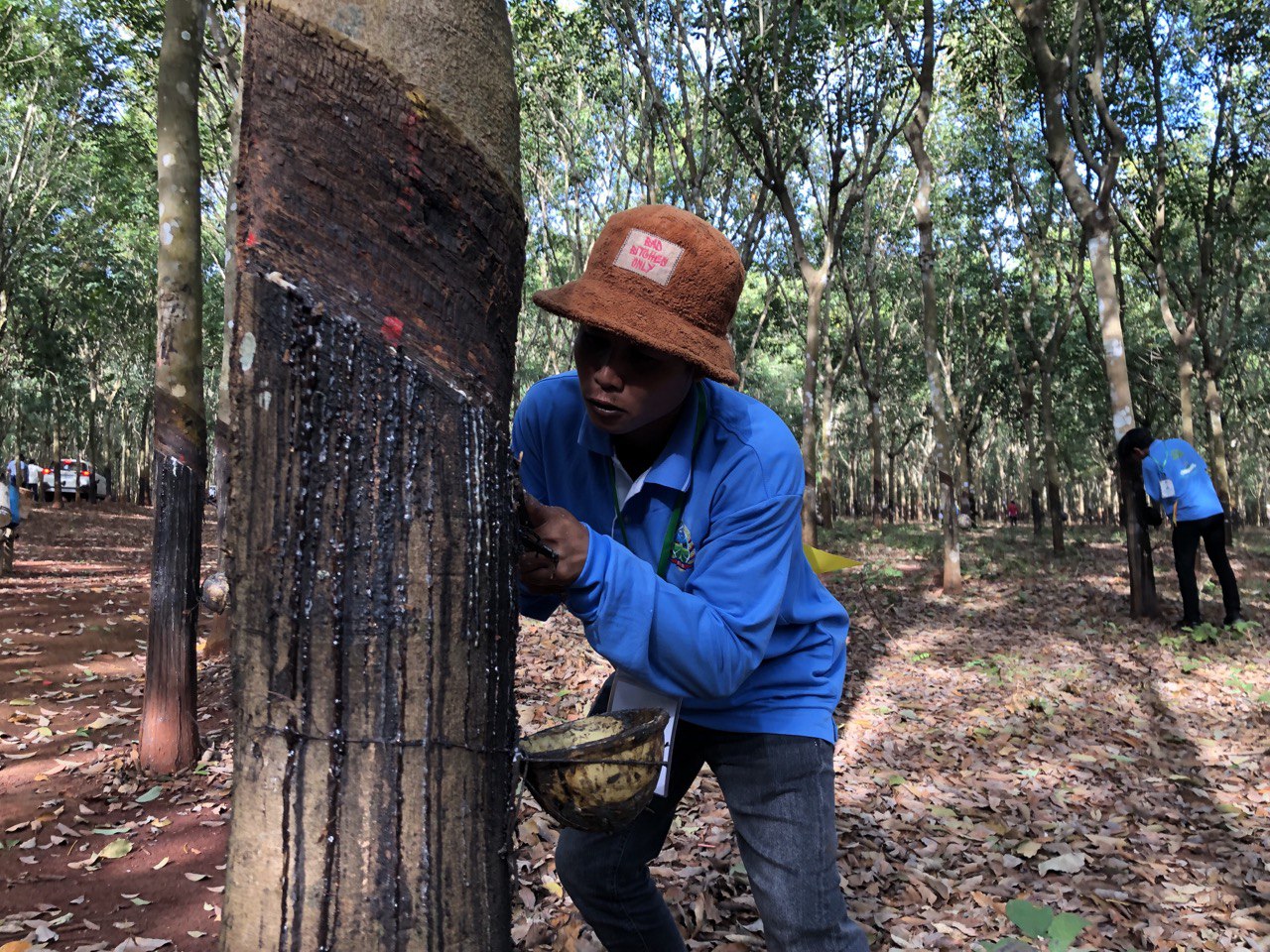
Workers tap rubber latex at a plantation in Tbong Khmum province. Niem Chheng.
The Council for the Development of Cambodia (CDC) has urged Vietnamese investors to invest in the creation of agricultural-industrial zones, with the goal of meeting growing demand for rubber processing and other agricultural production.
The proposal was raised by Chea Vuthy, secretary-general of the CDC’s Cambodia Investment Board, during an April 3 bilateral meeting with a delegation from the Vietnamese Rubber Industry Association in Cambodia.
The delegation was led by Truong Minh Trung, deputy general-director of Vietnam Rubber Group and chairman of the Rubber Plantation Development Committee, which oversees a 100,000-hectare rubber plantation project.
Vuthy welcomed the delegation, noting that is actively promotes the development of the Kingdom’s rubber industry.
He highlighted the Cambodia’s investment potential and outlined the benefits of direct investments in the country. Vuthy explained that many companies produce automotive tyres in Cambodia, which has led to an increasing domestic demand for rubber.
“I encourage the Vietnam Rubber Industry Association in Cambodia to invest in creating an agricultural-industrial zone to concentrate companies involved in processing rubber, rubber trees or other agricultural products, to meet growing domestic demand and supply local industry,” he said.
He stated that the CDC will support Vietnamese investment and looked forward to welcoming additional investments.
Minh Trung thanked the leadership of the CDC for the valuable information it had provided.
He shared updates of the association’s progress, and expressed interest in expanding investment in clean energy production in Cambodia.
He also noted that as a company with experience investing in Cambodia, he and his partners are genuinely interested in investing in the creation of agricultural-industrial zones.
According to the Rubber Department of the Ministry of Agriculture, Forestry, and Fisheries, Cambodia exported 338,000 tonnes of rubber to international markets in 2024, a decrease of 30,048 tonnes, or 8.16%, compared to 2023. The revenue generated was $666.25 million.
Khun Kakada, deputy director-general of the department, stated that while the volume of rubber exported in 2024 decreased slightly compared to 2023, actual rubber production has increased.
He explained that the decline in export volume was due to the increased number of domestic tyre manufacturing factories, which resulted in higher domestic demand.
In 2024, approximately 407,209 tonnes of rubber was produced, an increase of 15,410 tonnes or 3.93% compared to 2023, according to Kakada.
“In 2024, three factories were producing tyres. They utilised approximately 58,000 tonnes of local rubber, or around 4,800 tonnes per day,” he said.











